Emboldened Gazans express anger at Hamas, Israel over ceasefire talks impasse
Gaza’s war-weary population is growing increasingly frustrated, as a new poll of Palestinians shows support for Hamas dwindling in the enclave.

Gaza’s war-weary population is growing increasingly frustrated with the fruitless cycles of ceasefire talks, as a new poll of Palestinians shows support for Hamas dwindling in the enclave.
Months of diplomacy between Israel, Hamas and mediators from the U.S., Egypt and Qatar have failed to produce agreement even on the outline of a deal that would stop the fighting and free Israeli hostages in Gaza.
The back and forth, as the death toll from the war mounts and the humanitarian situation in the Gaza Strip deteriorates, is fuelling unprecedented public discontent in Gaza with the militant group that seized power there almost two decades ago.
“Hamas drove the bus to the edge and lost control,” said Omaima Abu Eida, a 58-year-old Gaza resident. “They are not negotiating for us, they are negotiating to stay in power after all this devastation.”
Fadi Awad, 32, an electrician and father of five living in a tent in central Gaza, said he was fed up with the negotiations and that Hamas was out of touch. “We hear positive talks, then pull back, then breakthrough, then it all falls apart and with it, our lives,” Awad said.
“Our leaders, Hamas, the Arabs, they watch us on TV from their hotels,” he added. “[They] do not know what it’s like to run for your life, hungry and barefoot.”
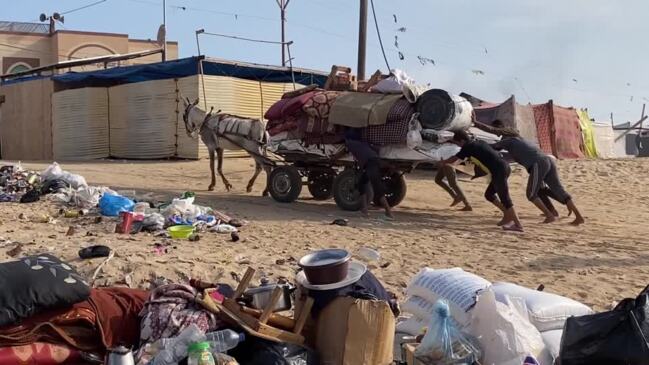
Support for Hamas as rulers in Gaza has fallen to 46% from 52% over the past three months, according to a survey of more than 700 residents of the enclave.
In the West Bank, the trend is reversed, with 71% of Palestinians surveyed supporting Hamas’s continued rule in Gaza, up from 64% in the previous poll, by the Palestinian Center for Policy and Survey Research.
Hamas didn’t respond to a request for comment.
The Hamas military leader in Gaza, Yahya Sinwar, is calculating that more fighting and more Palestinian civilian deaths work to his advantage, messages he has sent to ceasefire mediators and Hamas colleagues show.
The survey took place at the end of May, before an Israeli operation to rescue four hostages left 274 Palestinians dead and 700 injured at the weekend, according to Palestinian health authorities. The Israeli military said about 100 Palestinians were killed or wounded, including Hamas militants and civilians caught in the crossfire.
In response to the rescue operation, Hamas has hardened its negotiating stance, adding new terms that Israel can’t accept to an Israeli proposal presented by President Biden almost two weeks ago.
The militant group said in a statement late Wednesday that it had shown the “required positivity” to reach an agreement that “meets our people’s just demands, including a permanent ceasefire, complete withdrawal from the territory, return of displaced people, reconstruction and a serious prisoner exchange deal.”
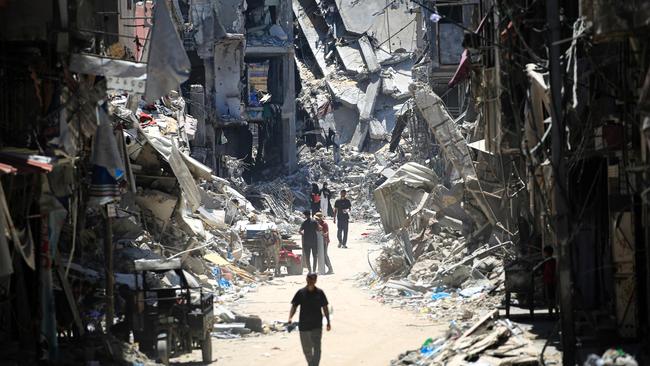
U.S. national security adviser Jake Sullivan said Thursday that Hamas hadn’t accepted the proposal but instead had responded with an amended proposal.
“Our goal is to figure out how we work to bridge the remaining gaps to get to a deal,” he told reporters ahead of the G-7 summit in Italy.
Israel and Hamas have haggled for months over fundamental differences in a familiar playbook that has ended each time in a collapse of talks. Hamas wants a permanent stop to the war and withdrawal of Israeli forces in exchange for the hostages it is holding in Gaza. Israel has said it won’t leave Hamas intact in the enclave and needs its hostages back before the war is declared over.
“People in Gaza have lost faith in Hamas, including many of the movement’s supporters. But people hate Israel more,” said a resident of the enclave.
“Following Hamas’s latest response, there is now unprecedented discontent and frustration within Gaza,” Nazir Majali, an Israel-based analyst with Arabic newspaper Asharq Al-Awsat, said Thursday.
“The population is increasingly critical of the movement’s leadership, describing its actions as unwise and irresponsible towards the suffering and pain of Gaza’s residents.”
Hamas has typically cracked down on public dissent in peacetime. But with Hamas personnel largely gone from the streets, public criticism of the group inside Gaza is growing, including on social media.
At the same time, fear of retribution from Hamas for voicing criticism of the group is diminishing, locals say.

Nu’man Hamouda, a 23-year-old accountant, said he has lost nine relatives, several friends, his job and home during the war.
“If Hamas and Abbas heard our screams they will be the ones to end this now, unite and say they surrender,” he said, referring to Mahmoud Abbas, president of the Palestinian Authority.
Despite Hamas’s waning popularity in Gaza, the latest poll found that it is still by far the most popular Palestinian political party in Gaza and the West Bank. More than two thirds of those polled said they supported the Oct. 7 Hamas-led attacks on Israel.
The researchers said that support for the attacks “does not necessarily mean support for Hamas and does not mean support for any killings or atrocities committed against civilians.” The backing comes from the belief among 80% of those questioned that the attacks brought global attention to the Palestinian cause, the researchers said.
The attackers from Gaza on Oct. 7 killed 1200 people in Israel, mostly civilians, according to Israeli authorities.
The current level of public criticism of Hamas is unprecedented, stemming from the perception that Hamas is detached from the everyday suffering of Gazans, said Mkhaimar Abusada, associate professor of political science at Al-Azhar University in Gaza and now based in Cairo.

While polls show Hamas continues to enjoy popularity among Palestinians in general who see the group as having revived their cause on the global stage, wartime polls don’t really capture the strength of feeling against Hamas among Gazans, Abusada said.
“Maybe 80% of Palestinians in the West Bank and diaspora love Hamas, something that gave them honour or dignity, but for someone who lives in Gaza and is paying the price, it’s a totally different story,” he said.
Israeli Prime Minister Benjamin Netanyahu, who is seeking to preserve his coalition and drum up support in his cabinet for a deal, has said that Israel’s reading of the plan presented by Biden is that it would allow Israel to fulfil its goal of destroying Hamas’s government and military capabilities. Those statements have led Hamas and many in Israel to believe Netanyahu isn’t serious about the proposal, which Biden presented as leading to a permanent ceasefire.
An organisation representing a majority of families with relatives held hostage in Gaza said it saw Hamas’s recent response to the ceasefire proposal as a step toward the deal’s acceptance.
Polls show a majority of Israelis prefer a deal to release hostages and end the war over continuing hostilities against Hamas.
In Gaza, according to the United Nations, over 1.7 million people are displaced and over a million are facing “catastrophic levels of food insecurity.”
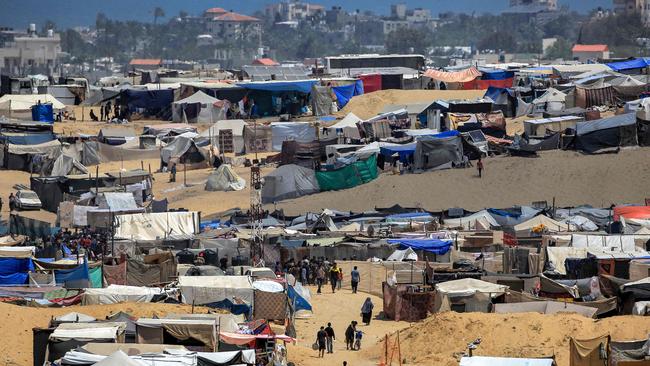
Much of the pre-existing healthcare system is either completely or partially out of service, and since early May, thousands of patients who need to be evacuated from the strip for emergency healthcare have been unable to leave, the U.N. said.
More than 37,000 Palestinians have been killed in Gaza since the start of the war, most of them civilians, according to Palestinian health authorities. The figure doesn’t specify how many were combatants.
Hamas, a U.S.-designated terrorist organisation, came to power in Gaza through elections held in 2006. It has since imposed authoritarian rule over the territory, clashing with the more moderate Fatah party — which runs the Palestinian Authority that controls parts of the West Bank — and losing much of its popularity.
A majority of Gazans polled said they believed that Israel and Hamas would agree to a ceasefire proposal last month, just before Israel began its current operations in Rafah, the southern Gaza city where people fled for shelter at the start of the war. Now, with the Islamic celebration of Eid al-Adha set for this weekend and talks at an impasse, it looks like Palestinians will spend another holiday without a ceasefire.
– Saleh al-Batati and Ken Thomas contributed to this article.
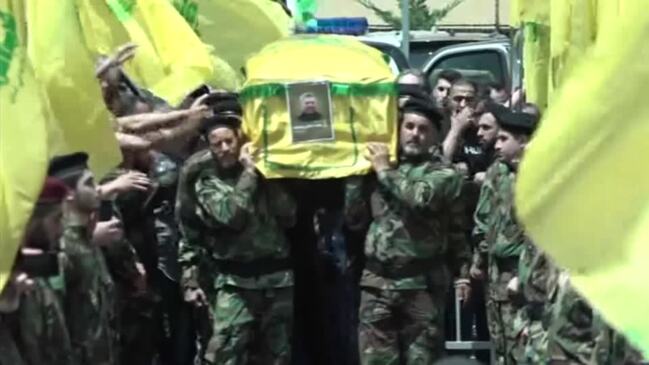
The Wall Street Journal

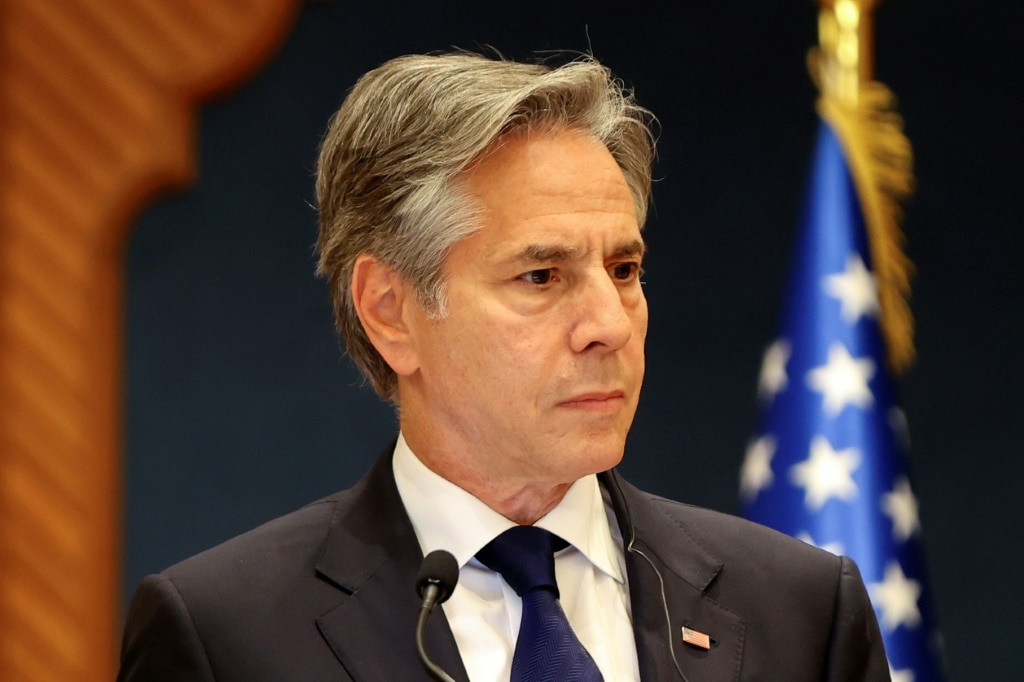


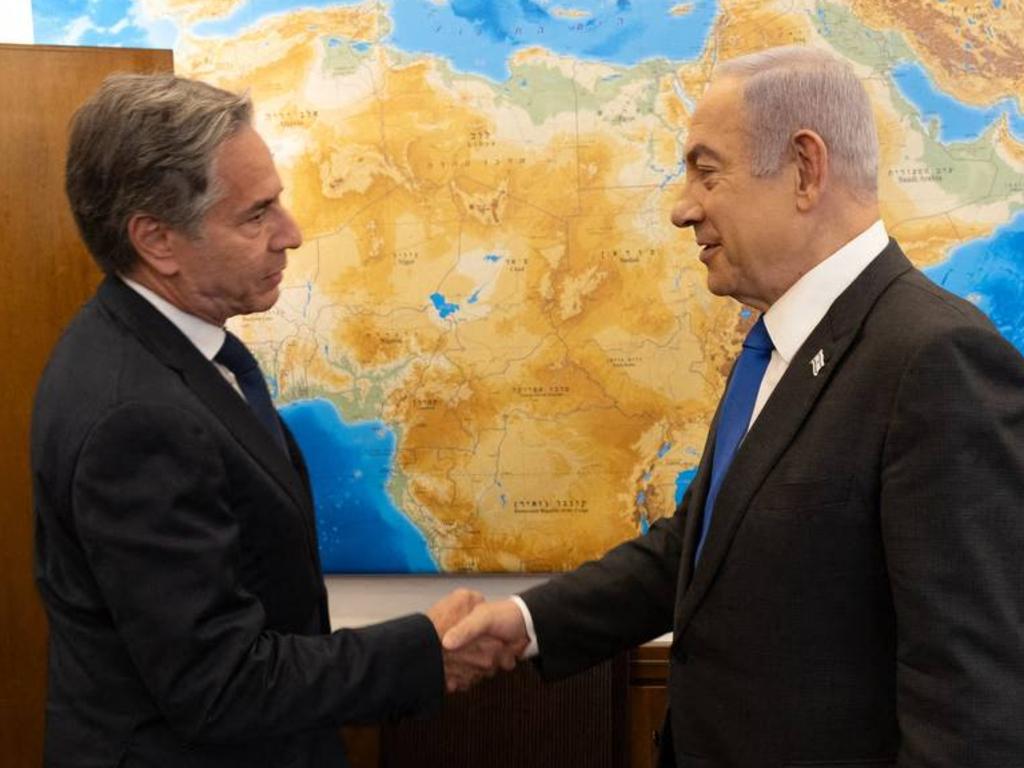


To join the conversation, please log in. Don't have an account? Register
Join the conversation, you are commenting as Logout